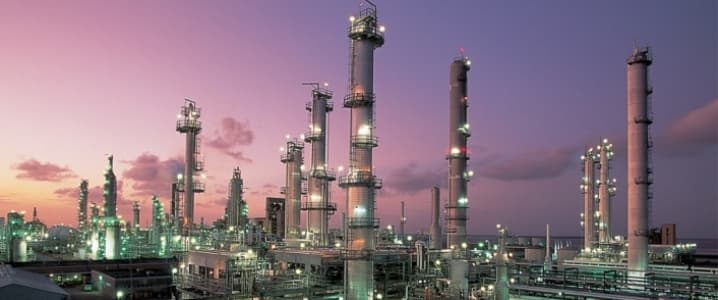This week we covered the impact on the automotive industry of Hurricane Harvey and the likely boost to demand that will come from the replacement of used and new vehicles damaged by the floods.
Today we look at Harvey’s impact on the oil, natural gas and refining markets — not that you will need any reminding of the impact of Harvey if you have been into the gas station to refuel your car.
According to the Financial Times, the average retail price of petrol in the U.S. rose to $2.59 per gallon on Saturday, quoting to the American Automobile Association. That was up about 10 percent from its level the week before Harvey hit, and its highest level since August 2015 as refineries were taken out across southern Texas. Ten refineries in the region were still shut down on Saturday morning, according to the Financial Times, with a combined total of about 2.9 million barrels per day of refining capacity, representing a whopping 16 percent of the U.S. total, according to the Department of Energy.
The scale of the hit to U.S. supplies and the near instant spike in prices underlines just how reliant the U.S. is on the Gulf Coast for refining, refined product exports and LNG exports. Due to their location inland, primary production from shale resources in the Permian and Eagle Ford escaped damage and were back online as soon as wind speeds dropped, but lower-lying refineries were not so resilient.
This all goes to highlight a worrying exposure the U.S. has to this particular part of the world. Whether you believe in global warming, whether you accept climate change, whether you think it is all some left-wing plot is not the issue. The issue is Gulf crude production has more than doubled since 2005, leading a 75 percent nationwide increase, and now accounts for almost two-thirds of total U.S. crude production, up from 54 percent in 2005.
Yet while oil import dependency has plunged from 60 percent in 2005 to just 25 percent today, the refining of domestically produced oil has concentrated even more in the Gulf region. Related: An Energy Independent North America Needs NAFTA
Refining capacity in coastal Texas and Louisiana has, according to the Financial Times, increased by a quarter since the middle of the last decade, such that the region now handles half of all U.S. refining.
The U.S. isn’t the only one exposed to this one region. Rising total exports of refined products have left 90 percent of gross exports leaving from the Gulf region exposing neighbours in the region, who are reliant on U.S. supplies, to disruption in the event of a natural disaster — like a hurricane — or even a terrorist strike.
Some would argue that the flooding of southern Texas is less of a one-in-500-year occurrence than politicians would have us believe. The whole of the Mississippi delta is gradually sinking into the sea as levees built in the last century and canals built for oil extraction access prevent the river from depositing fresh silt and simultaneously allow the ingress of brackish water that kills off the vegetation once covering the area, the Economist reported last month. Storms and floods account for almost three-fourths of weather-related disasters the Economist wrote this month and they are becoming more common.

(Click to enlarge)
According to the insurer Munich Re, the Economist states that Harvey is the third 500-year flood to hit Houston since 1979. The U.S. may have little choice in the medium term than to continue its heavy reliance on Gulf-based refining and related infrastructure; if that is the case, then significant work needs to be done to better protect those facilities in the future.
By AG Metal Miner
More Top Reads From Oilprice.com:
- The Next Step In Mexico’s Oil & Gas Privatization Push
- Libya Resumes Production At Largest Field Amid Rising Oil Prices
- Failed Oil Price Recovery Slams Energy Stocks

















